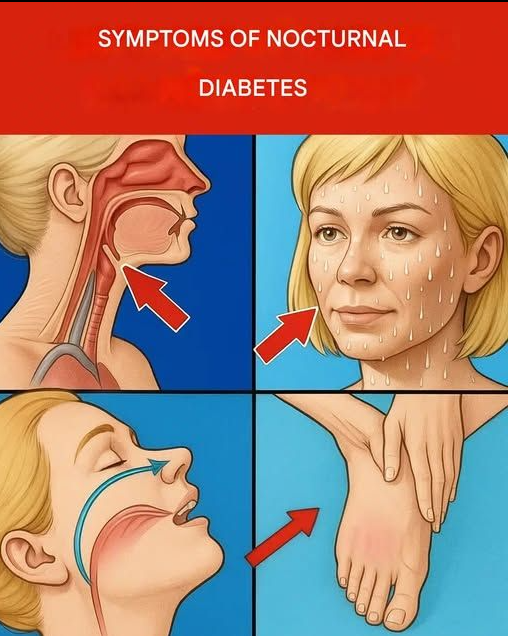While night sweats can be caused by other conditions, for people with diabetes, they may signal nighttime hypoglycemia (low blood sugar). This happens especially if you take insulin or certain oral medications that lower blood sugar levels too much while you sleep.
Symptoms may include:
-
Waking up drenched in sweat
-
Shaking, confusion, or irritability during the night
-
Headaches in the morning
3. Restless Legs or Tingling Sensation
If you often experience a tingling, crawling, or burning feeling in your legs at night, it could be a sign of diabetic neuropathy — nerve damage caused by long-term high blood sugar levels. This discomfort can make it hard to fall asleep or stay asleep.
Signs to look for:
-
Pins and needles in the legs or feet
-
Burning or numbness that worsens when lying down
-
Feeling the need to constantly move your legs
4. Insomnia or Poor Sleep Quality
Diabetes can interfere with your ability to sleep deeply. Blood sugar fluctuations — whether too high or too low — may cause restlessness, anxiety, or unexplained awakenings. Hormonal imbalances related to diabetes can also disturb your circadian rhythm.
Symptoms may include:
-
Trouble falling asleep despite being tired
-
Waking up frequently without a clear reason
-
Feeling unrefreshed after a full night’s rest
5. Leg Cramps or Muscle Twitching
Electrolyte imbalances and poor circulation due to diabetes can lead to painful leg cramps or muscle spasms during the night. These cramps might wake you up suddenly and can range from mild twitches to intense, prolonged contractions.
Potential causes include:
-
Dehydration
-
Nerve damage or reduced blood flow
-
Imbalance in magnesium or potassium levels
When to See a Doctor
If you experience any of these symptoms regularly, especially in combination with other classic signs of diabetes (like unexplained weight loss, fatigue, or increased hunger), it’s essential to consult a healthcare provider. A simple blood test can check your glucose levels and help you start a treatment plan if needed.
Final Thoughts
Nighttime should be a time of rest and recovery — but for many people with undiagnosed or poorly managed diabetes, it’s a time when important symptoms surface. By paying close attention to what your body is telling you after dark, you can catch early warning signs and take proactive steps to improve your health.
Your sleep speaks volumes. Are you listening?
